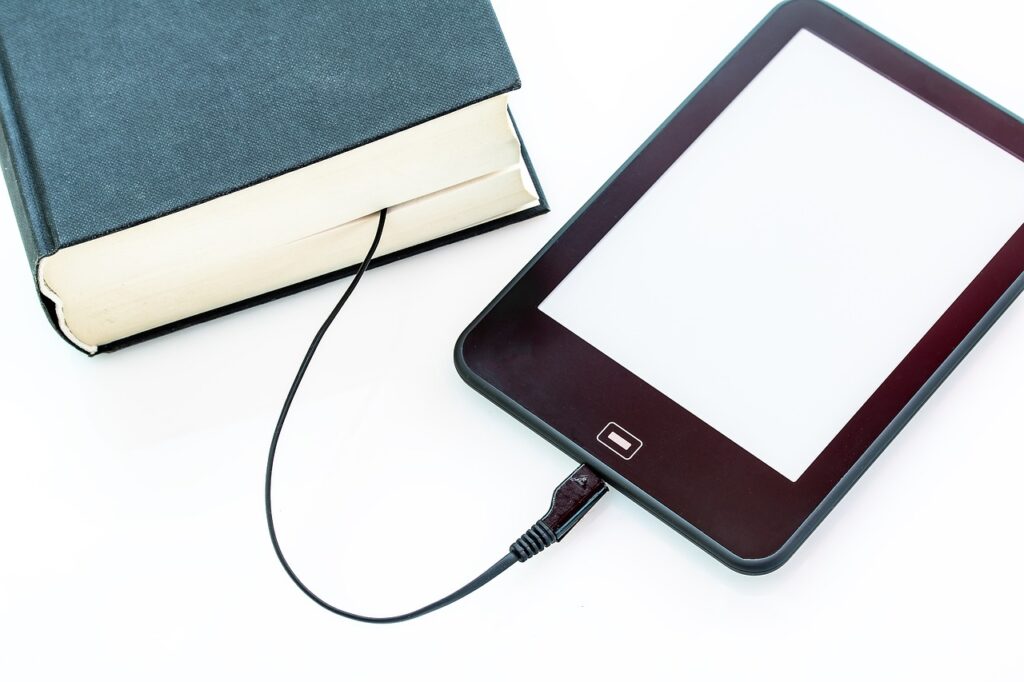
As a storyteller or creative writer, you might struggle with deciding the best format for releasing and publishing your new book. If you’re self-publishing a book, there are some factors to consider when deciding if you want it published as a physical book or an eBook.
To make the right choice for your work, it’s essential to weigh the pros and cons, consider factors such as your audience and genre, and evaluate the financial considerations involved. Let’s take a look at these publishing choices.
Print Publishing
Printed books are made on paper in paperback or hard copies.
Although print books may seem outdated in the digital age, surveys and statistics show quite the opposite. In comparison with eBooks, studies reveal that printed books are preferred by 68% of readers between ages 18 and 29. 63% of readers above 50 also prefer print books while 17% prefer reading eBooks.
Pros
- Tangible presence: Printed books offer a physical presence that can be cherished by readers and displayed on bookshelves. Not to talk of that new book smell!
- Prestige: Traditional print publishing is often associated with prestige and credibility within the literary world.
- Potential for wider distribution: Printed books have the potential to reach a broader audience through traditional bookstores, libraries, and book fairs.
Cons
- Longer production timelines: Print publishing typically involves longer production timelines, including editing, formatting, printing, and distribution.
- Higher upfront costs: Printing and distributing physical copies costs more compared to digital publishing.
- Limited flexibility: Once printed, it can be difficult to make new revisions or updates to printed books without incurring additional expenses and costs.
- Authors may receive an advance against royalties from publishers, but royalties per book sold are often lower compared to online publishing.
Online Publishing (eBooks)
As the name implies, eBooks are online books that are read on electronic devices like eReaders, tablets, and mobile devices like smartphones and iPhones.
With the aid of self-publishing platforms, authors have the opportunity to publish their books at minimal cost, while retaining a higher percentage of royalties per book sold.
However, authors are in charge of all aspects of the publishing process, including editing, formatting, and marketing, which can take a lot of time and energy.
Pros
- Accessibility: Digital publishing allows for instant access to books, making them easily available to readers worldwide.
- Lower production costs: Digital publishing often involves lower production costs, as there are no expenses associated with printing, marketing and physical distribution.
- Greater control: Self-publishing platforms give authors greater control over the publishing process, including pricing, distribution, and marketing strategies.
Cons
- Market Oversaturation: The digital marketplace is oversaturated with books, making it challenging for new authors to stand out amidst the competition.
- Perception: Although digital content has been accepted by almost everyone, some readers still see self-published eBooks as inferior to traditionally published works.
- Limited offline exposure: While online publishing offers global reach, it may lack the offline exposure and local visibility that traditional print publishing provides.
Factors to Consider When Publishing Your Book
Audience

When deciding how to publish your book, you must know the preferences and demographics of your target audience. What percentage of readers prefer reading eBooks and print books? Does your audience read the genre of your book? This will also affect your decision-making.
Financial Considerations
Online publishing is relatively cheaper than print publishing. Expenses are incurred when printing, marketing and physical distribution of print books.
Genre
Certain genres may lend themselves better to print or digital publishing. For example, coffee table books, children’s books, and art books often benefit from the visual appeal of print publishing. On the other hand, genres such as romance, mystery, and sci-fi thrive in the digital space, where readers consume books voraciously.



Pingback: How to self-publish a book in 2024: the essential steps for self-publishing online. - Roger Bray Books